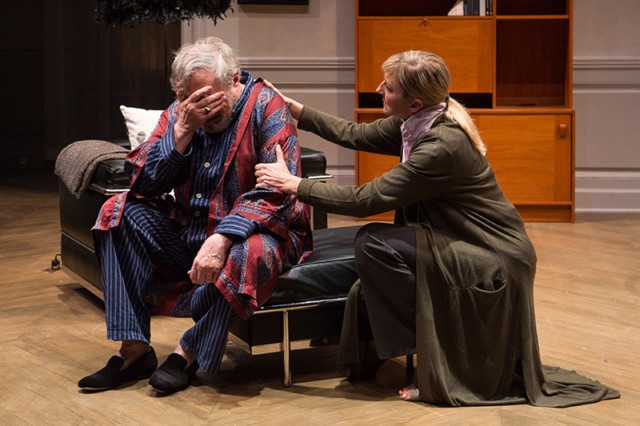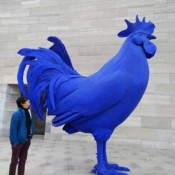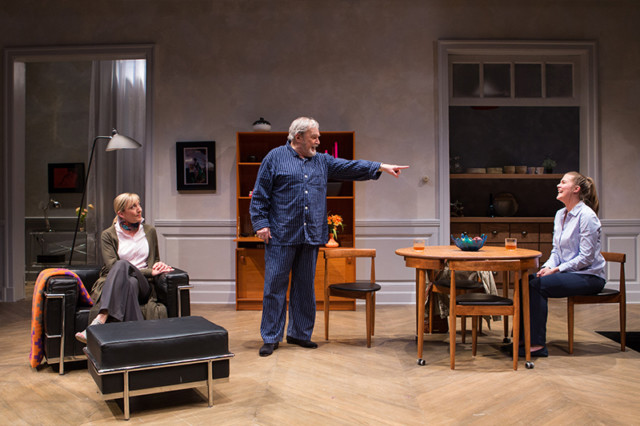French author Florian Zeller fell in love with theatre when he first started working on his first play. He said it connects one with death- because what happens on stage one night will never happen again. This sense of impermanence and unpredictability is what drives his play The Father- which is currently showing at Washington DC’s Studio Theatre.
Ahmad Coo is a producer and copy editor for the Global Business show on CGTN America. His analysis represents his views alone.
The play revolves around Andre, a retired engineer who’s living alone in his Paris apartment. He’s healthy but his advanced age has his daughter Anne worried. He’s repeatedly refused his daughter’s offer to find him a live-in nurse who will help him with his daily living. But Anne eventually informs him that she’ll be moving to London to live with her boyfriend.
Andre is disappointed and hurt that Anne will be moving away from Paris. He tries to convince his daughter to stay, to no avail. He turns defiant saying he doesn’t need any nurse to help him with his everyday living. Andre is used to having his way but at 80 years old, he’s not as sharp as he used to be. But he believes he’s still lucid enough to hold his own.
However there are times when Andre’s memory betrays him. People he doesn’t recognize flit in and out of his apartment claiming to be persons of importance in his life. First there’s that strange woman who claims to be his daughter Anne. Andre is especially alarmed when another man posing as Anne’s husband drops by his home to check on him.
Instead of talking to these people, he plays along trying to mask the terror of having these complete strangers in his home. Zeller uses these scenes to instill levity at first, as we watch Andre fumble his way through conversations with these people he seemingly doesn’t know.
But it becomes clear enough that something is going terribly wrong with Andre’s mind. His memories have become extremely fluid- making him remember things that may or may not have existed or recalling events that may or may not have happened. His hold on reality is becoming increasingly tenuous. The play has become what Zeller calls a ‘tragic farce’- one finds it funny but you risk laughing at your own humanity.

Ted van Griethuysen and Kate Eastwood Norris in The Father. Photo: Teresa Wood.
The playwright heightens the confusion by introducing some very clever plot devices and playing with time- rolling it backwards and forwards repeatedly. The skill which Zeller plays with the script and the plasticity of Andre’s thoughts has the effect of disorienting the audience. Even this writer began doubting his own recollection of the play’s timeline. This also feeds into one of Zeller’s themes: the unpredictability of life and the lack of control over our own lives.
As Andre grows more befuddled with the changing faces and identities of his loved ones, Zeller’s script ramps up the irreversible decline of his mind in order to make the audience also feel powerless and hopeless. And one of the reasons why this works well is Ted van Griethuysen’s portrayal of Andre. He is funny, frightening, charming, and ultimately, tragic.
It’s easy to see ourselves in Andre because all of us- if we’re lucky enough to reach old age- will eventually live diminished lives. It’s inevitable that our minds and bodies will eventually betray us as we grow older and there is nothing we can do about it- a fact that the ‘The Father’ mercilessly hammers home for the audience.
 CGTN America
CGTN America
 Kate Eastwood Norris, Ted van Griethuysen and Caroline Dubberly in The Father. Photo: Teresa Wood.
Kate Eastwood Norris, Ted van Griethuysen and Caroline Dubberly in The Father. Photo: Teresa Wood.

